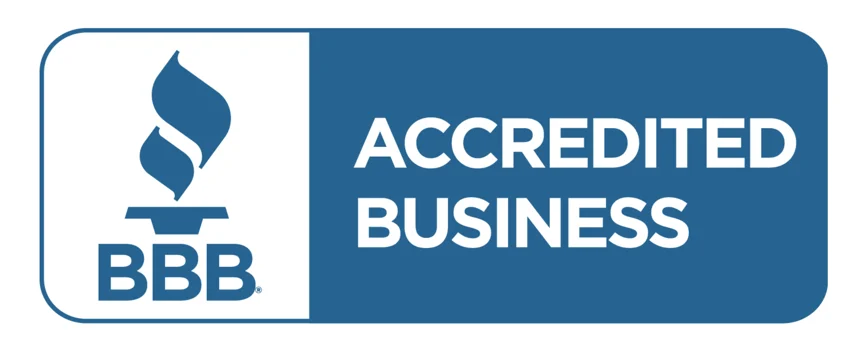Should I Sell or Rent My House? A Realistic Guide for Homeowners
May 03, 2025 | Hanna Cena
If you’re asking yourself, “Should I sell or rent my house?”—you’re not alone. Many homeowners face this exact decision when relocating, upgrading, or navigating a life change like divorce or inheritance. And let’s be honest, it’s not always a simple yes or no.
In this guide, we’ll walk you through the key questions to ask, financial comparisons, and real-world pros and cons of both options so you can make the best decision based on your goals, timing, and local market.
1. What’s Your Immediate Financial Need?
Your financial situation plays a huge role in deciding whether to sell or rent your house. Start by asking yourself: do I need money now, or can I wait to build long-term equity?
If you’re moving and need quick access to cash—whether it’s to buy a new home, pay off debt, or cover a family emergency—selling is likely your best option. A home sale can give you a large lump sum that’s available right away. This is especially helpful if you’ve built up equity over the years and the home is in a high-demand area.
On the other hand, if you’re financially stable and don’t need to cash out immediately, renting could give you passive income month after month. For homeowners with low mortgage rates or paid-off properties, renting can be a smart long-term wealth-building strategy.
Keep in mind, becoming a landlord comes with responsibilities. Even if renting looks profitable on paper, unexpected maintenance or vacancy issues can eat into your income quickly.
If you’re unsure, try running a side-by-side comparison. Tools like NerdWallet’s rent vs. sell calculator can help you visualize which option brings the most value based on your goals.
2. Can You Be a Landlord?
Renting a home is a business. That means dealing with:
- Tenants and lease agreements
- Property maintenance and emergency repairs
- Rent collection and possible late payments
- Insurance and taxes
If you’re moving out of town or simply don’t have the bandwidth to manage the property—or pay a property manager—selling might save you stress and time.
3. Is the Market Right for Selling?
Timing matters when it comes to selling your house. If you’re in a strong seller’s market—where demand outweighs supply—you could walk away with a great return. In places like Grand Rapids, Holland, Muskegon, and Wyoming, we’ve seen consistent price growth and multiple-offer situations, which can work in your favor as a seller.
Pay attention to:
- Current inventory levels in your area
- Average days on market
- Recent sales of similar homes (comparables)
- Mortgage interest rates
If homes are selling quickly and for top dollar, it may be smart to take advantage of the momentum and cash out. This is especially true if you need the proceeds to purchase your next home or pay off debt.
However, if the market is shifting or slowing down, holding on and renting might be a better option. Rental demand often remains steady—even when home sales cool—so leasing your property could help cover your mortgage until the market improves.
Local real estate professionals or websites like Realtor.com Market Trends can help you assess how hot (or cool) your area is right now.

4. Will the Home Cash Flow as a Rental?
Before renting out your house, it’s crucial to determine whether the rental income will actually cover your costs—and ideally, generate profit. This is where calculating your cash flow comes into play.
Here’s what you’ll need to consider:
- Average rent in your neighborhood for similar properties
- Monthly mortgage payment (including principal and interest)
- Property taxes and homeowner’s insurance
- Routine maintenance and repairs
- Vacancy allowance (periods when the property may sit empty)
- Property management fees (if you plan to hire help)
Once you’ve added up those expenses, subtract them from the potential rental income. If the result is positive, the property will cash flow. If not, you may end up paying out of pocket to keep it afloat.
In areas like Kent County, Ottawa County, and nearby cities such as Jenison and Hudsonville, rental rates can vary depending on demand, neighborhood appeal, and the condition of the home. Newer or well-maintained properties in high-demand school districts typically rent for more.
If you’re unsure how your numbers stack up, you can use free tools like the BiggerPockets Rental Property Calculator to run scenarios and project long-term profit or loss.
Renting can be a solid wealth-building move—but only if the math works in your favor.
5. What Are the Tax Implications?
Before making a decision to sell or rent your house, it’s important to consider the tax consequences that come with each option.
Selling:
If the home has been your primary residence for at least two of the past five years, you may qualify for a capital gains tax exclusion. This allows you to exclude up to $250,000 of the profit from taxes (or $500,000 if you’re married and filing jointly).
That means if you sell your home and make a profit, you might not owe any capital gains tax—as long as you meet the ownership and residency requirements. This can be a major financial advantage.
Renting:
If you convert your home into a rental property and hold it for several years, you could lose the capital gains exclusion. Rental income will also be taxable, although you may be able to deduct certain expenses like maintenance, property taxes, and depreciation.
While renting can create long-term financial gain, it’s important to understand that the longer you wait to sell, the more complex your tax situation may become.
Before making a final decision, it’s wise to consult a qualified tax professional. You can also read more in the IRS guidelines on real estate taxes, which outline both capital gains exclusions and rental income rules.
Understanding the tax implications now can help you avoid surprises later.
6. Emotional Considerations Matter Too
Some homeowners have deep emotional ties to a property. Maybe it’s the home you grew up in, or where you raised your kids.
If parting with the house feels too soon, renting it for a few years could help ease the transition.
Just be mindful: tenants won’t treat the property like you did. You’ll need to emotionally prepare for wear and tear.
7. What’s the Long-Term Plan?
Ask yourself:
- Do you plan to return to the area in a few years?
- Do you want to build a rental portfolio?
- Do you need the proceeds from this home to buy your next one?
If you’re unsure or your goals lean toward simplicity, selling may give you the clean slate you’re looking for.
If your financial and life plan supports holding onto real estate, renting could be a great wealth-building tool.
Final Thoughts: Should You Sell or Rent Your House?
There’s no one-size-fits-all answer to this question. The best decision depends on your financial goals, emotional readiness, local housing market, and ability to manage a rental.
Here in West Michigan, markets like Grand Rapids, Kentwood, Muskegon, Belding, and Jenison all offer unique opportunities—and we’ve worked with homeowners in every one of them.
If you’re leaning toward selling and want a fast, no-hassle option, Hometown Development can help. We offer fair cash offers and local market insight to help you move forward with confidence.







